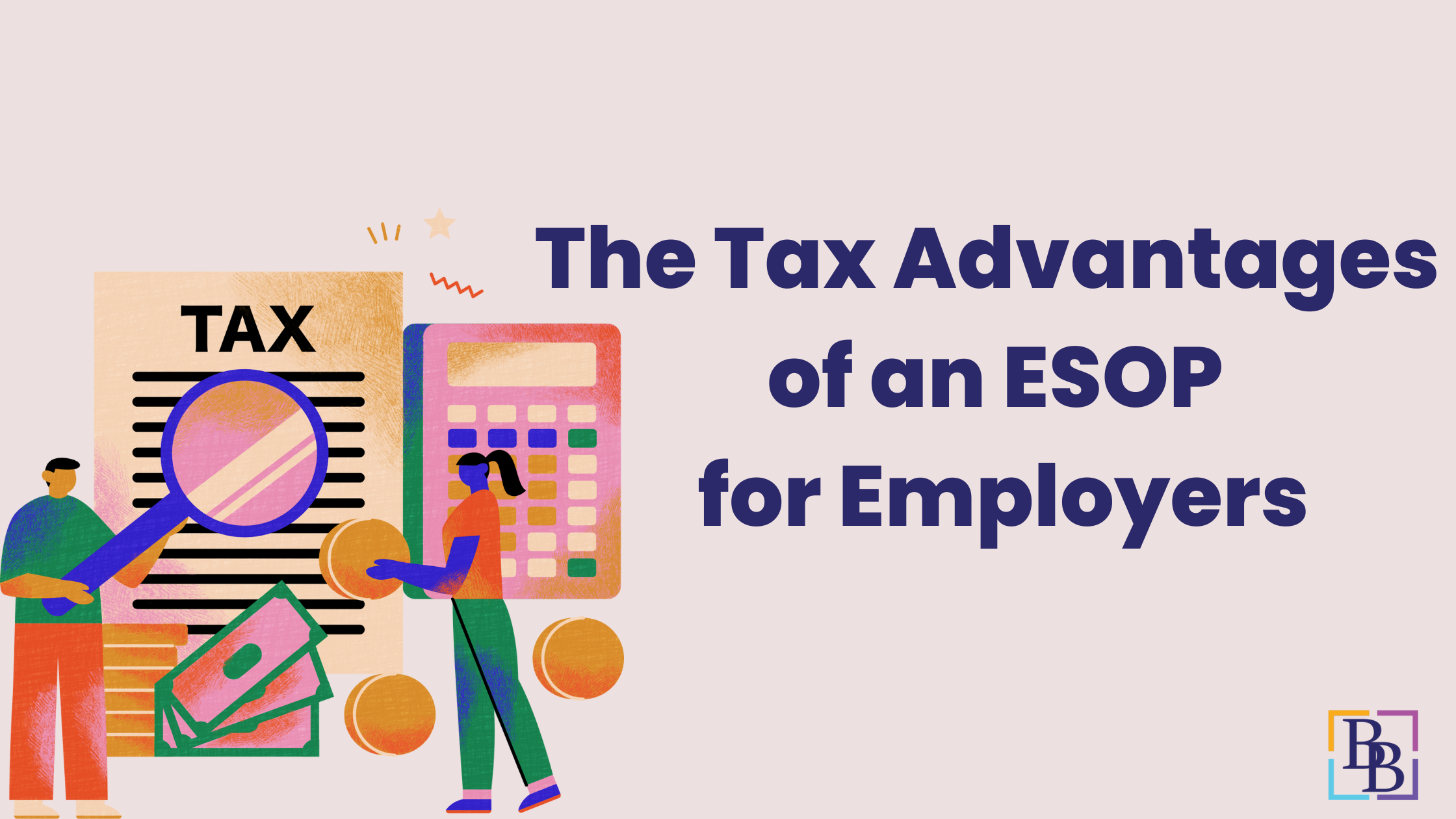An Employee Stock Ownership Plan provides tax benefits, improved employee motivation, succession planning and potential for appreciation for employers. Employee stock ownership plans, or ESOPs, allow employees a financial interest in their employer. Employee stock ownership plans, which have been available since the 1970s, are now widely used by businesses as a means of luring and keeping talent while also providing tax advantages to the company.
9 Tax Advantages of an Employee Stock Ownership Plan for Employers
-
Deduction of Contributions to the ESOP
The ability of the employer to deduct contributions made to the plan is one of the most important tax benefits of an Employee Stock Ownership Plan. Up to 25% of an employee's salary may be deducted as a contribution to the employee stock ownership plan. This implies that an employer might lessen its tax burden by decreasing its taxable income by the amount of the contribution made to the Employee Stock Ownership Plan.
-
Diversion of Corporate Income Taxes
By rerouting corporate income taxes, an Employee Stock Ownership Plan can potentially offer tax advantages. The corporation does not have to pay taxes when an Employee Shares Ownership Plan purchases employer stock and uses the revenues to settle debt or make new investments. As a consequence, the corporation pays less in taxes and has more money to invest in expanding the company.
-
Deferral of Capital Gains Taxes
The possibility to postpone paying capital gains taxes when selling business shares is another advantage of an employee stock ownership plan. Let's say a closely held company owner sells their shares to an employee stock ownership plan. Then, until they sell their shares or the Employee Stock Ownership Plan is dissolved, they can postpone paying capital gains taxes on the sale. This enables the owner to postpone and even extend for several years the payment of sale-related taxes.
-
Increased Depreciation Deductions
By boosting depreciation deductions, an Employee Stock Ownership Plan can potentially offer tax advantages. When an Employee Shares Ownership Plan takes out a loan to buy company stock, the business can write it off as a tax deduction. As a result, the business can cut its taxable revenue and thus, its tax burden.
-
Employee Retention and Attraction
An Employee Stock Ownership Plan can aid with employee attraction and retention in addition to the tax advantages. Employees that feel invested in their business are more likely to stick with it and are more dedicated to its success. Long-term benefits for the business include reduced turnover costs and increased productivity as a result of this.
-
Estate Planning Benefits
Business owners may profit from an employee stock ownership plan in terms of estate planning. Owners can pass ownership of their company to their workers without paying estate taxes by selling their shares to an employee stock ownership plan. This may save a lot of money on taxes and ensure that the people who know the company best continue to own and run it.
-
Employee Motivation and Satisfaction
Enhancing employee happiness and motivation is another advantage of an employee stock ownership plan. Employees are more likely to feel a feeling of ownership and pride in their job when they have a stake in the firm. Higher levels of productivity and engagement may result from this, which would ultimately be advantageous for the business.
Additionally, when workers feel invested in the firm, they are more likely to be driven to support its expansion and success. A more engaged and effective team may be a great asset for any business as a result of this.
-
Succession Planning
In addition, an ESOP might be useful for succession planning. When an employee stock ownership plan is set up, it might offer a direct route for passing control of the business on to the following generation of executives. This can facilitate a seamless transfer of ownership and control, which is crucial for closely held enterprises.
Additionally, it helps guarantee that the business is kept in the hands of people who are dedicated to seeing it succeed, which can bring stability to both the business and its staff.
-
Potential for Appreciation
Last but not least, an ESOP might be advantageous by giving the chance for appreciation. When workers have stock in the business, they are motivated to see it flourish and expand. This may result in a more motivated and focused staff, which would boost performance and raise the company's worth.
Additionally, when employees hold stock in the firm, they have the chance to profit from any increase in the value of the business, which may increase their future financial stability.
An ESOP can provide a company a number of tax advantages, including the ability to deduct contributions, divert corporate income taxes, postpone capital gains taxes, boost depreciation deductions, improve employee attractiveness and retention, and offer estate planning advantages.
A corporation may find an Employee Stock Ownership Plan to be a good investment despite the administrative and legal obligations. To ensure that their Employee Stock Ownership Plan is correctly constructed and operated to maximize its tax benefits, employers must collaborate with an experienced employee stock ownership plan expert.
